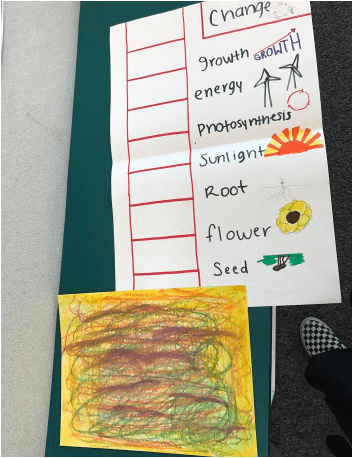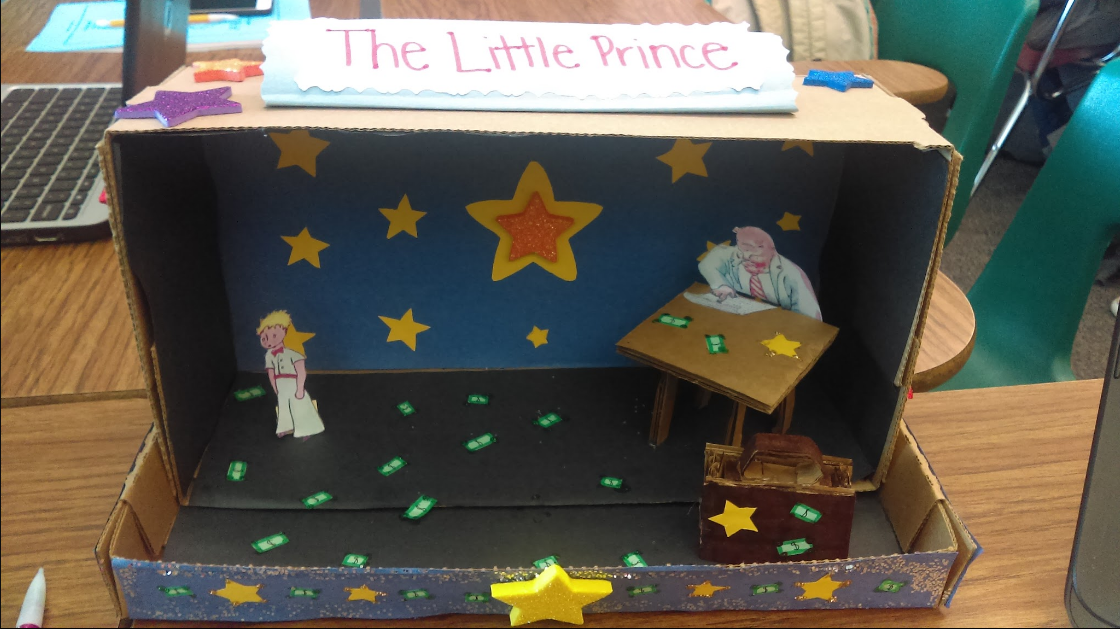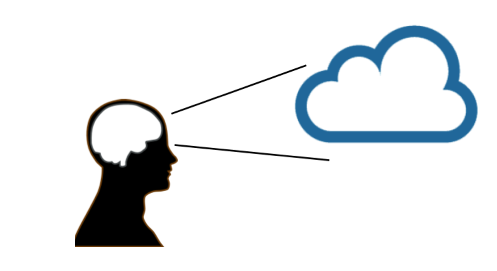|
We, too dream America
They send us to work in the fields We harvest corn and squash We pick strawberries From sun up to sun down, we work hard to put food on our table We work hard, make low wages, yet don't belong in this country We moved to have a better life, better jobs, freedom, etc. That is why we are here in America Someday we hope to make as much money as any other white person We, too dream America
0 Comments
Teenagers and children are in danger when playing the game, “Pokemon Go.” According to Document A, ‘Pokemon Go’ Craze Raises Safety Issues, by Sarah E. Needleman, Document B, Pokemon Go: The One Serious Problem Everyone Should Worry About, by Bernard Marr, and Document D, ‘Is Pokemon Go Good For Our Society?,’ each of these sources give us an understanding on why Pokemon Go is endangering our society. Pokemon GO is leading us to dangerous or inappropriate places.
To begin with, Pokemon Go is leading us to places where we don’t belong. As stated in Document A, “The placements of PokeStops and gyms raise questions about whether players could get hurt searching unsafe areas-a dark alley or along a river, for example-particularly while staring at a smartphone screen”, when players are trying to catch Pokemon, they are staring at their devices so there is a big possibility that they will get injured. When staring at their phones, they don’t know where they are going because their main focus is on their device. Also according to Document A, “The game could be leading people into areas where they don’t belong, such as construction sites or shuttered storefronts.” While playing Pokemon Go, the goal is to catch as many Pokemon as you can but, you need to walk towards places to catch them. Players may be trespassing certain areas just to catch their Pokemon Furthermore, Niantic is gaining information about the players and are using that information for the future. As said in Document B, “Companies want to collect as much information as possible about their customers so they can prepare for future business. People never read the lengthy terms of service agreements they’re happily agreeing to, and don’t understand the full information they’re voluntarily giving away.” The more players that are playing Pokemon Go, the more information the company earns, and the more money the company earns, they’ll use this information for the future. Also, stated in Document B, “It uses a Google map and your real-world GPS location to direct you to Pokemon you can catch, and that information can be misused.” Since players don’t understand the information that they are giving away, their information will be misused and companies will use that information in the future. To continue on, players who are playing Pokemon Go, are failing to see their surroundings. According to Document D, “News reports say that users have tripped, fallen into a lake, crashed a car, and sustained other injuries while playing.” Not only are the players hurting themselves, but they are also hurting the people around them. These players are causing many damages to others and themselves. Also, as said in Document D, “A police department in Philadelphia warned on Twitter, “Be mindful of what you play online.” People love to catch Pokemon and play with their friends, but it is dangerous. Players can be in serious danger while playing this game. In conclusion, Pokemon Go is not a safe game to play for teenagers and children. Pokemon Go has caused many injuries, sends us to dangerous surrounding, etc. Pokemon Go cannot be played for everyone. Busy with no chance to rest, the businessman on the fourth planet continues to count the stars that he owns all day long. Throughout all of this chapter, we can see that it’s based on repetition. After visiting numerous planets, the Little Prince finds himself on the 4th planet and finds a man on his desk trying to calculate the stars that he owns in front of him. After he finishes counting them, he counts them again and again. According to the fictional story The Little Prince by Antoine de Saint Exupéry, it demonstrates how stars are counted over and over again by the businessman. The universal theme that is explored in chapter 13 is that patterns have segments that are repeated; this is revealed through the characterization of the businessman, the different points of view, and an allusion to a greedy economy.
To begin with, the Little Prince visits the 4th planet which is owned by a businessman who continues to count stars on his desk. According to The Little Prince, the businessman repeats himself by saying, “Three and two make five. Five and seven, twelve. Twelve and three, fifteen. Hello. Fifteen and seven, twenty-two. Twenty-two and six, twenty-eight. No time to light it again. Twenty-six and five, thirty-one. Whew! That amounts to five-hundred-and-one-million, six-hundred-twenty-two-thousand, seven hundred thirty-one.” This shows that even though the Little Prince is trying to have a conversation with the businessman, the businessman blocks what the Little Prince is saying and focuses on counting his stars. After finish counting his stars, the businessman starts over and continues counting. Also, a picture that is illustrated in The Little Prince displays, a businessman repeatedly counting stars. After analyzing the image, we can come to a conclusion that there is a pattern going on with the businessman on this planet. Although, the businessman finishes counting the stars on his desk, he starts over and over. No matter how many times he has found the result of how many stars are on his desk, he will never take a pause when doing something else. Furthermore, after encountering the businessman, the Little Prince begins to start a conversation while the businessman remains still counting the stars that he owns. As said in The Little Prince, “To whom do they belong?” retorted the businessman grumpily. “I don’t know. To nobody.” “Then they don’t belong to me, because I thought of it first… Now I own the stars, since no one before me ever thought of owning them.” This explains to us that the businessman’s mindset is that since he had the idea of owning the stars, he believes that the stars are his property. The Little Prince’s mindset is that the stars aren’t owned by anyone. From looking at both of their perspectives we notice that they both have different opinions about who owns the stars. Also said in The Little Prince, “And what do you do with them?” the little prince said. “I manage them. I count them and then count them again,” the businessman said. “It’s difficult work. But you can’t pick the stars!” When the businessman explained what he executes with the stars, it shows us that even after finished counting his stars, he will forever continue counting them. The businessman understands that it challenging but he never stops counting his stars. Furthermore, after encountering the businessman, the little prince had noticed that there was an allusion to a greedy economy. According to The Little Prince the businessman shows greed by saying "And what good does it do you to own the stars? It does me the good of making me rich. And what good does it do you to be rich? It makes it possible for me to buy more stars, if any are discovered." This shows that the only reason the businessman wants the stars is to buy more stars. This shows that he is being greedy and wanting all the stars to himself even though he has no use for the stars, other than to buy more stars. Also another piece of information on greed is in The Little Prince, "I myself own a flower, he continued his conversation with the businessman, which I water every day. I own three volcanoes, which I clean out every week (for I also clean out the one that is extinct; one never knows). It is of some use to my volcanoes, and it is of some use to my flower, that I own them. But you are of no use to the stars . . . The businessman opened his mouth, but he found nothing to say in answer. And the little prince went away.” This shows that the businessman is greedy because although the stars have no use from the businessman he continued to call them his. This is how there was an allusion to a greedy economy in The Little Prince. In conclusion, the businessman finishes counting the stars which in he sees as something valuable and the little prince doesn’t see anything special in them. The universal theme is patterns which states how the businessman counted stars repeatedly, how the businessman and the little prince have different points of view like we have all had, and finally the concentration the businessman had towards the stars was always there. After reading The Little Prince, my group and I created the scene where the Little Prince visits the 4th planet and meets the businessman. This is supposed to show that the businessman sees the stars as money while the Little Prince views them as just stars.
Laptops, Computers, the Internet, etc have all been able to give us information to make us smarter. According to the article, “The Independent Tech”, it explains how Google is not affecting us in any negative way. Also, according to Resource A, “Is Google making us stupid?” it gives us information on why Google isn’t affecting us in a positive way. Google gives us access to the Internet to look up things faster, by giving us information, we learn more, and when you can’t find Resources, Google can help!
To begin with, when we need to find information about a certain topic, Google gives us many sources to choose from. According to Resource A, it says, “Just as a car allows us to move farther, access to the Internet’s information lets us think better and faster.” When looking up something on Google, it gives us various sources on the answers we need in a short amount of time. Also, according to Resource A, it explains “Today, Google is the new technology. The Internet contains the world’s best writing, images and ideas; Google lets us find the relevant pieces instantly.” The Internet gives us an understanding that when we need an answer on something, Google is there in an instant! Moreover, with the information Google gives us, it makes us smarter. According to the article, “The Internet Tech, “ it states, “She says technology helps us live smarter as we’re able to access answers.” Instead of us going to the library to find a book and find the information you need, Google is there in an instant to help us find information a lot easier and faster. Basically, instead of wasting time at the library finding a book and then checking it out, you can grab your device look up the information you need and Google will not only give you the answer, but it will also give you several sources. Also according to Source B, “This isn’t making consumers more dumb, instead it’s helping them to think smarter.” Google doesn’t make us dumb, it just helps us get the information that we need in a faster, easier way. To continue on, Google does not affect us in a negative way, it affects us in a positive way. According to Resource A, “When the history of our current age is written, it will say that Google has made us smarter-both individually and collectively- because we have ready and free access to information.” Google allows us to learn new information by giving us the information we need to learn about. Lastly, based on these Resources, Google does not affect us in a negative way, but a positive way. Thanks to Google, we’re able to access the Internet in a faster way to help us find the information we need to make us smarter. High Ratings in obesity have been developing in children. Based on Source A, The New York Times UpFront, Source B, MedicalDaily.com, and Source C, all explain how obesity is spreading throughout children. These sources give us an understanding as to why schools should or should not ban junk food. Poor eating habits have been developing at an early age and sadly are leading to a lifetime of extreme health consequences. Kids are now becoming obese and schools believe that if they ban junk food, then the high ratings of children with obesity will decrease.
To begin with, banning junk food doesn’t teach children how to make healthy choices. According to Source A, “an important part of education is learning to make good choices. The author continues to explain, “An across-the-board junk-food ban doesn’t teach young people how to make healthy choices; “it simply removes some of their options.” If schools were to ban junk food then it would make students want junk food even more. Although students wouldn’t eat unhealthy food at school, they would most likely want to buy junk food outside of school. The kids mentality is that they can still purchase snacks when they go to the grocery store with their parents. Junk food may not be allowed in schools, but they are allowed in students homes. Source A also asks, “Are we talking about potato chips, soda, and pastries? What about fried chicken fingers, cheeseburgers, and pizza? “ It does make sense for the schools to ban junk food because it is unhealthy; however, it wouldn’t make sense if the school lunches offer to serve food that is just as bad. In addition, some students are not able to afford healthy food. Sadly, in almost every school, there are several students whose parents struggle financially. As stated in Source B, “For some students, school is the only place they get a meal. In low-income communities, fast food is easy to access and affordable, but healthy food is inaccessible because it is very expensive.” As said before, there are students who aren’t able to buy healthy food. Since junk food is less expensive than healthy foods, struggling parents who can’t afford much would much rather buy the junk food. Also, according to Source A, “Improving what we teach about nutrition and requiring more physical activity are better ways to approach obesity than imposing statewide junk-food bans.” This piece of textual evidence explains that if schools were still able to keep junk food and have physical education programs then the ratings of obesity would not be as high. If schools continue to provide PE or after school sports, then students would be able to burn off the calories they ate throughout the day. Furthermore, based on Source C there are high percentages of children with obesity. Source C points out, “Less than 25% of high school students participate in daily physical education programs.” This means that ¼ of high school students do not get any type of workout. If students eat junk food and participate in PE, they are able to burn off the calories from the junk food intake. Also, Source C maintains, “92% of elementary schools don’t have year-round physical education programs.” This proves that both high schools and elementary schools lack physical education programs which will allow students to burn off the calories consumed from junk food. If schools were to have PE programs the ratings of obesity would decrease. To conclude, obesity is prevalent in many children around the country. Each source gives us a clear understanding of the pros and the cons of having junk food sold at schools. To no surprise, kids can obtain unhealthy food in local convenient or grocery stores, allowing many students to intake thousands of calories. It is difficult for low income families to afford organic healthy food because it is outrageously overpriced. This obstacle makes it difficult for parents to help their kids lead a healthy lifestyle. Physical Education is lacking in the schools. This is another reason why obesity is spreading worldwide. All in all, students should have the opportunity their own choices on what foods they eat. According to Descarte, existentialism is a philosophy that emphasizes the individual existence. This means that people do not always have the same answer. If they look at a type of inkblot, some may say it looks like a tree and some may say it looks like a bunch of lines. This does relate to perceiving versus perception, thinking versus thought, or judging versus judgment because each of them explain to us that many people have different perspectives.
 Our Abstraction Project represents the change of a seed. In the beginning it is a seed, then blossoms into a flower, then it becomes a root, after that sunlight hits which then creates phototsynthesis, photosynthesis creates energy, after energy becomes growth which then creates a change and growth from the seed. As you can see, the borders of our Abstraction Art represent the sun. The inside colors show that the colors are changing from the sun. Our Absrtaction Art shows change. The quote, "I think, therfore I am" explains how Descarte believed in Irrefutable truth. Irrefurable Truth is the act of thinking. When you think about something, Descarte thinks that this is Irrefutable Truth. During his time he would think to himself, "Am I really here?" or "Are we just dreaming?". He though that if you think, then you are alive. Which comes to the understanding of, "I think, therefore I am". He thinks therefore, he's alive. This is why Descarte said this quote, "I think, therfore I am".
|
AuthorWrite something about yourself. No need to be fancy, just an overview. Archives
June 2017
Categories |


 RSS Feed
RSS Feed
